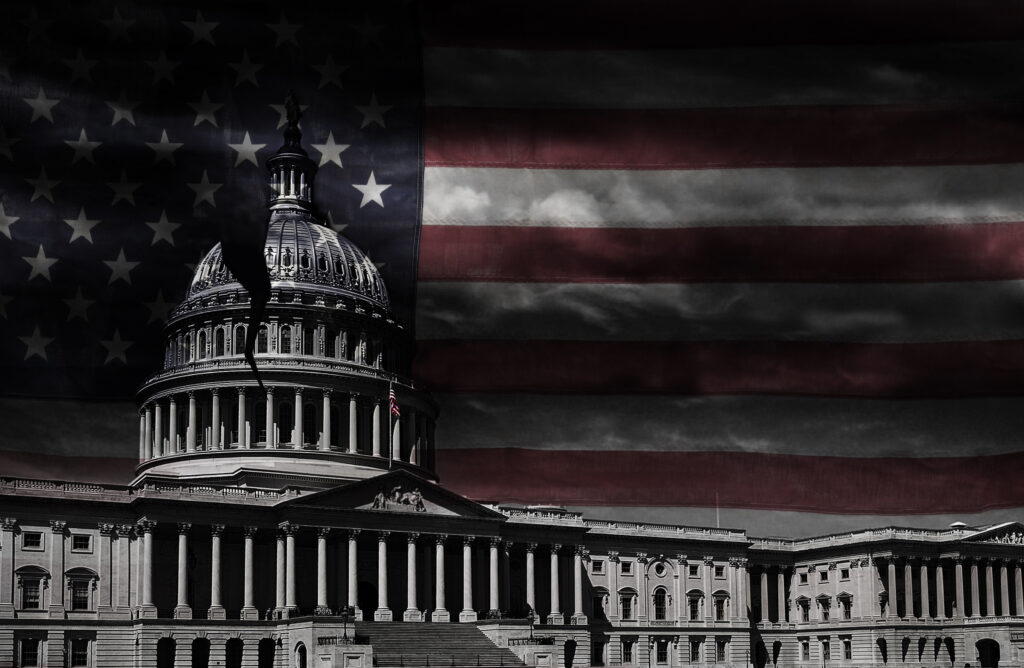Government officials increasingly act as though they’re somehow beyond criticism. But the truth is exactly the opposite – they have a duty to be transparent and accountable to citizens, and that requires them to confront criticism head-on.
The impulse to dodge criticism and shirk responsibility, and in some cases even criminalize dissent, is most evident in the context of the debate over election integrity. In Arizona, Pennsylvania, Wisconsin, and elsewhere, government officials have treated public criticism with contempt and gone on the attack against anyone who dares to question their conduct.
In Arizona, the Maricopa County Board of Supervisors aggressively refused to cooperate in good faith with the recently concluded state Senate audit of the 2020 election, even after the courts ordered them to comply with subpoenas demanding that they turn over election materials and information. When the auditors expressed concern that certain election data had been withheld, for instance, the board haughtily responded that the information had been archived, and was not turned over because the subpoena did not explicitly specify archived data. The board appeared to be downright gleeful about sidestepping the subpoena, even though doing so only served to exacerbate confusion and doubt about the election.
In Wisconsin, Democrat Gov. Tony Evers recently encouraged municipal clerks to get “lawyered up” before speaking with the Office of Special Counsel that the State Assembly created to investigate the 2020 elections. The special counsel, retired Wisconsin Supreme Court Justice Michael Gableman, has been very clear that the purpose of the investigation is not to overturn the election, but rather to restore public confidence in the electoral process by determining what went right as well as what may have gone wrong in the administration of the election.
The only reason clerks would need to be “lawyered up” is if they had something to hide, such as intentional violations of state election law for partisan purposes. If mistakes were made or laws were unintentionally broken due to the confusion of running an election during a pandemic, Gableman’s purview is merely to suggest reforms designed to strengthen the process going forward, not to punish clerks.
In Pennsylvania, Attorney General Josh Shapiro and every Democrat in the state Senate have filed lawsuits to block subpoenas seeking information about voters as part of a comprehensive investigation into the 2020 election. They claim that the lawsuits are intended to protect voter privacy, but the alleged threat is purely hypothetical and protecting voter privacy is not their concern, as the Democrat-operated Department of State shares the same information sought with outside vendors and private partisan organizations. Pennsylvania’s voter registration system may have been compromised by an agreement entered into by the Democrat secretary of state that gave digital access to a partisan activist group, which then licensed out that access to scores of other organizations, including political campaigns. It appears the Democrats in the Pennsylvania Senate are working to prevent any review of these secret agreements.
In Michigan, state officials took an even more aggressive approach, with Attorney General Dana Nessel (pictured) threatening to investigate anyone who questions the integrity of the 2020 election.
It’s not just election integrity issues that bring out this sort of anti-democratic elitism, though. Marine Corps Lt. Col. Stuart Scheller was jailed – in solitary confinement, no less – for publicly criticizing the botched U.S. withdrawal from Afghanistan. Meanwhile, Gen. Mark Milley is not being held accountable for either his role in the Afghanistan debacle – even after an errant drone strike killed seven innocent children – or his communications with China without the president’s knowledge, nor his repeated communication with various authors and journalists.
This is not the way it’s supposed to work in a democracy. Too many government officials today think they’re above reproach and beyond rebuke, and believe that our rights emanate from government and, therefore, can be removed as desired by those in authority.
The American people cannot tolerate such elitism from public officials if we desire to maintain our freedoms. Any people claiming to be free must have the courage to stand for the freedoms of those with whom one disagrees. If we do not do so, we will not long remain free.
When our elected officials refuse to be open and transparent with us, we should assume it’s because they’re not doing their jobs properly, and we should use the power of our votes to replace them with someone who respects our rights as citizens. Otherwise, we might find one day that we no longer have the option of replacing corrupt or incompetent officials.
By Phill Kline
Phill Kline is the Former Kansas Attorney General. He currently serves as Pulpit Pastor of Amherst Baptist Church, a law school professor, and director of the Amistad Project of The Thomas More Society. Previously, he served as president of the Midwest Association of Attorneys General, was on the Executive Committee of the National Association of Attorneys General, and was co-chairperson of the Violent Sexual Predator Apprehension Task Force. He was a Kansas House member for eight years where he chaired the Appropriations Committee and the Taxation Committee and authored victims’ rights laws and welfare reform.
This article originally appeared in Real Clear Politics.


